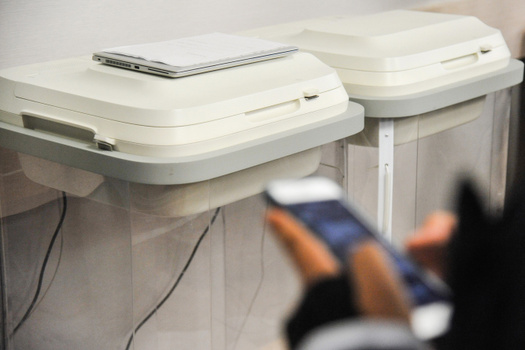
First test for Moscow’s online voting system ends in failure
Мы говорим как есть не только про политику. Скачайте приложение.
Moscow’s first test for a new remote electronic voting system ended in a technological failure, prominent election analyst Grigory Melkonyants announced on Facebook. The Internet voting mechanism was put to the test during an election for the best student congress president in Moscow’s higher education system. 1,794 “voters” — that is, Moscow university students — were asked to select their favorites from a list of 15 candidates.
Melkonyants said that the voting system failed while votes were still being cast. “The printers aren’t printing, and the stats aren’t refreshing, but at the same time, we can say with certainty that the students are voting,” he wrote. An accompanying photograph of a voting observation machine indicated that data in the new system stopped changing at 5:00 PM local time.
Melkonyants told Meduza that at 7:00 PM, an hour before the “election” ended, its observers were asked to leave early. He explained that organizers had decided to conduct the final vote count in another location without any monitors present. He also predicted that the results of the test would be discussed on July 15 at the next scheduled meeting for the local government’s technology working group.
Moscow City Duma Speaker Alexey Shaposhnikov had previously stated that every stage of the electronic system’s testing process would be open to the public. Moscow’s Community Headquarters for Election Observation had indicated two weeks before the test that individual defects had been detected in the new voting system but asserted that they could be corrected. After the unsuccessful test, Russia’s federal Election Commission issued a press release that did not mention any technical failures. Meduza was unable to obtain comments from the representatives of Moscow City Hall who conducted the test.
The first full-fledged online voting session is scheduled to take place in Moscow during the course of this September’s City Duma elections. Electronic voting will be used in three precincts of the city’s 45. City Hall representatives have already announced that they plan to continue testing the system until mid-August at the least, meaning that new changes will be made to the system less than a month before the elections take place.
Report by Alexander Baklanov and Mikhail Zelenskiy
Translation by Hilah Kohen